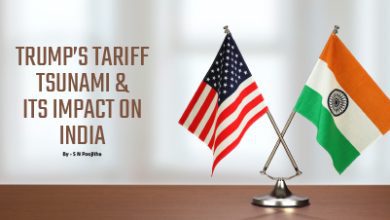Selective Enforcement or Genuine Investigation?
Scrutinizing the ED’s Role in the Delhi Excise Policy Case

In the labyrinth of Indian politics, where power, ambition, and accountability intertwine, the actions of the Enforcement Directorate (‘ED’) stand as a sentinel of justice. Yet, as the spotlight intensifies on high-profile cases involving political figures, the ED finds itself at the heart of a gripping debate. Are its pursuits driven by a genuine quest for justice, or are they swayed by the currents of political influence, veering towards selective enforcement? The arrest of Delhi Chief Minister Arvind Kejriwal in the excise policy case thrusts these questions into sharp relief, casting a stark light on the ED’s role, and igniting fervent discussions about the integrity and even-handedness of its investigations. ED is a key agency in India, mandated by the Prevention of Money Laundering Act (‘PMLA’) to combat financial crimes. It investigates and prosecutes cases related to money laundering and illicit asset acquisition, aiming to uphold the integrity of India’s financial system.
Our aim here is to closely examine the actions undertaken by the ED in this case and determine whether these actions lean more towards selective enforcement or genuine investigative efforts. To achieve this, we’ll embark on a legal analysis, referencing various sections of relevant laws, including the PMLA and other pertinent statutes
Background of the Delhi excise case:
The Delhi excise policy case, which unfolded between November 2021 and July 2022, entailed allegations of corruption, procedural lapses, and significant financial losses exceeding Rs 580 crore. The policy purportedly involved a 6% kickback, allegedly used to influence elections in Punjab and Goa. Following investigations, former Deputy Chief Minister Manish Sisodia and communication in-charge Vijay Nair were arrested. The ED accused Delhi Chief Minister Arvind Kejriwal of direct involvement, labelling him as the “kingpin and key conspirator.” Investigated by both the Central Bureau of Investigation (‘CBI’) and the ED, the case primarily focuses on alleged money laundering. Despite receiving nine summonses from the ED, Arvind Kejriwal did not respond, resulting in his arrest on March 21, 2024. This event marked a significant turning point in the ongoing legal proceedings related to the case.
The Enforcement Directorate has been at the centre of a contentious investigation into the Delhi Excise Policy case involving Delhi Chief Minister Arvind Kejriwal and the Aam Aadmi Party (AAP). The recent developments, such as the filing of a chargesheet against Arvind Kejriwal and the AAP under the PMLA, have raised questions about the ED’s approach. Allegations of selective enforcement and political motivations have been raised, with the AAP criticizing the agency’s actions as politically biased. While the agency’s efforts to combat financial crimes are commendable, ensuring transparency, fairness, and impartiality in investigations is paramount. The balance between enforcing the law and avoiding political influence is crucial for upholding the integrity of the investigative process. Arvind Kejriwal and AAP leaders have vehemently criticized the ED’s investigation, alleging political motivations behind the agency’s actions. Kejriwal, in response to the summons issued by the ED, has raised concerns about the timing and nature of the notices, labelling them as vague and politically motivated, particularly in the context of the Lok Sabha elections, suggesting a potential political agenda behind the ED’s actions. The AAP asserted that this case marked the first instance in the ED’s history where, despite over two years of investigation, more than 500 raids, and the filing of eight chargesheets, not a single rupee was recovered from any AAP leaders. Critics contended that if the ED possessed evidence of corruption, it should have swiftly proceeded to trial. They argued that keeping the accused in jail while the investigation drags on violates the rule of law. Since the accused are political opponents of the ruling party, these arrests are perceived as selective law enforcement, undermining public confidence in democracy itself.
While Additional Solicitor General SV Raju had claimed that the probe agency has enough evidence to show that Kejriwal demanded ₹100 crore bribe which was used by AAP in the Goa assembly poll campaign. It is found that democratic politics in this country can be brought to a standstill by central agencies, even as the Court and the Election Commission of India continue to consider this as routine law enforcement. This is not the first time a central agency has gone after a constitutional functionary, as Hemant Soren resigned as Chief Minister of Jharkhand before his arrest by the ED. The ED’s actions against political leaders in Tamil Nadu, such as the arrests of V. Senthilbalaji and K. Ponmudy, ministers in the current DMK government. While the ED may have valid reasons to investigate these cases, there are concerns about the agency selectively targeting opposition leaders while doing little to pursue allegations against members of the previous AIADMK regime.
Examination of the ED’s Powers
The statutory functions of the Directorate include enforcement of following Acts: “Conservation of Foreign Exchange and Prevention of Smuggling Activities Act, 1974 (COFEPOSA), Foreign Exchange Management Act, 1999 (FEMA), Prevention of Money Laundering Act, 2002 (PMLA), Fugitive Economic Offenders Act, 2018 (FEOA).”
“The ED wields extensive authority under PMLA to address money laundering activities. These powers include the ability to carry out searches of properties and seize money or documents under Section 16 (power of survey) and Section 17 (search and seizure) of the PMLA, once it is determined that money laundering has occurred. Following this, the ED can decide on the necessity of an arrest based on Section 19 (power of arrest). Additionally, Section 50 grants the ED the authority to conduct search and seizure operations without prior summoning of the individual involved. In cases where an arrest is made, the ED has a 60-day window to file a prosecution complaint or chargesheet, given that the punishment under PMLA does not exceed seven years. If no arrests are made but property is attached, the prosecution complaint along with the attachment order must be submitted to the adjudicating authority within 60 days. The PMLA’s schedule has broadened significantly from 6 to 30 offenses since its inception in 2002, now encompassing crimes ranging from terrorism to wildlife hunting and copyright infringement. Amendments in 2009 included ‘criminal conspiracy’ as an offense, empowering the ED to investigate conspiracy cases. Further amendments in 2015 and 2018 expanded the ED’s jurisdiction to seize properties in India linked to money laundered abroad, while 2019 amendments extended their authority to attach properties acquired through criminal activities.”
Judicial and Public Responses
However, with this significant extension of power, there are growing concerns about the ED’s adherence to proper procedures and the potential for selective enforcement. Allegations have surfaced that the ED often fails to follow due process, as outlined in the Enforcement Case Information Report (ECIR), which is treated as an internal document and not shared with the accused. This lack of transparency can lead to arbitrary and selective targeting, raising questions about the fairness of the ED’s investigations. The Supreme Court is currently examining these issues, particularly the misuse of PMLA provisions in cases unrelated to organized crime or narcotics, and the opaque nature of the ED’s case selection process. Critics argue that this selective enforcement undermines the credibility of the ED and poses a threat to individual liberties, as the initiation of an investigation can severely curtail a person’s freedom.
There have been instances where doubts have been raised about the Enforcement Directorate’s actions, but it is essential to recognize the multitude of cases where the ED has acted with genuine intent and upheld the rule of law. The arrests and investigations in high-profile cases like those of Vijay Mallya, Nirav Modi, and Christian Michel exemplify the agency’s commitment to combating financial crimes without bias. However, to ensure transparency and fairness, it is imperative to strike a delicate balance between robust investigation and adherence to legal principles
Implications for the Rule of Law and Democratic Processes
To ensure that the ED conducts its actions in accordance with the principles of natural justice and the rule of law, it is imperative to establish a consensus between the adjudicating authority and the ED officers regarding the constitutionality of provisions within the PMLA. The Rule of Law, a longstanding principle governing the conduct of states, dictates that all entities, including the government, are subject to the supremacy of the law. This principle stands in contrast to Rule by Law, where the government utilizes legal frameworks to govern and may be perceived as being above the law. Therefore, to uphold the Rule of Law, it is essential for the ED to collaborate with adjudicating authorities and ensure that its actions are consistent with constitutional norms and legal standards.
Conclusion
The process itself should not become a punishment, and the ED’s expanded powers should be accompanied by a greater commitment to expeditiously resolve cases. There must be constant scrutiny over the ED’s operations to improve the conviction rate and fill any gaps in the law through suitable legislation or executive action. In nutshell, while the ED has the power to investigate and prosecute cases, it must balance its genuine investigations with the selective use of power. The agency must ensure that its actions are guided by the principles of natural justice, the rule of law, and the Constitution, and that its thorough, impartial and transparent investigations.

Ex. Legal Intern @ Singhania & Co. LLP






